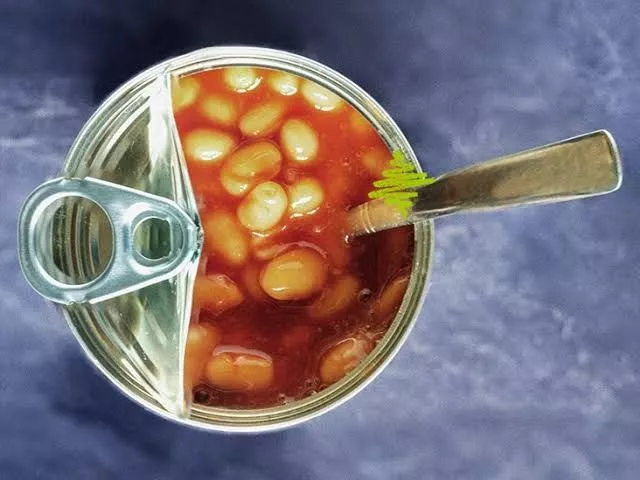
We all know about the benefits of water for our bodies and the recommendation to drink plenty of it daily.
Yet, consuming excessive amounts of water isn't necessarily advantageous. Overhydrating-drinking more water than what your body can process-can lead to severe side effects, resulting in significant health issues and, in extreme cases, even death. Continue reading this article to understand more about water intoxication and the risks associated with overhydration.
What is Water Intoxication?
Water intoxication, which may also be referred to as overhydration or hyponatremia, presents a physical disorder arising from an irregular balance of electrolytes within the body. When there is an excess of water, it disrupts the equilibrium between water and electrolytes, causing cells to start swelling. This situation becomes particularly hazardous, as enlarged cells in the brain can lead to increased intracranial pressure. As this pressure escalates, the blood flow to the brain might be compromised, resulting in central nervous system dysfunction, seizures, coma, or even fatality.
Risk Factors
The primary reason behind water intoxication is generally the excessive consumption of water. This condition is particularly perilous during water-drinking competitions, where participants are encouraged to outdrink one another without urinating. Indeed, several fatalities have occurred due to these events.
While the excessive intake of water is the chief culprit, additional medical and physical conditions or lifestyle behaviors can heighten the risk of water intoxication. Such conditions include:
Kidney disease, heart failure, and syndrome of inappropriate anti-diuretic hormone (SIADH). Each of these conditions hampers the body's ability to eliminate water, thereby amplifying the threat of water intoxication.
Age. Elderly individuals often have lower sodium (an electrolyte) levels in their blood, increasing the likelihood of an electrolyte imbalance. Additionally, infants consuming excessive water or diluted formula are vulnerable to water intoxication.
Hormonal fluctuations. Certain alterations in adrenal or thyroid function can lead to decreased sodium levels.
Severe vomiting or diarrhea. The heightened loss of fluids and electrolytes raises the risk for individuals.
Diet. A diet low in sodium also predisposes individuals to an electrolyte imbalance.
Medications. Thiazide diuretics and specific pain relievers or antidepressants might result in increased urination or sweating. Ecstasy also amplifies the risk of overhydration.
Climate change. Relocating to or visiting much hotter climates than one is accustomed to can heighten sweating and the risk of an electrolyte imbalance.
Additionally, those participating in endurance sports or working outdoors in high temperatures face greater risks for water intoxication. These individuals tend to lose more sodium through sweat, and when they drink large volumes of water in an attempt to rehydrate, they often fail to replenish sodium levels sufficiently to maintain a proper balance, resulting in hyponatremia.
Symptoms
The primary indicators of overhydration encompass:
Fatigue
Headache
Confusion
Nausea
Vomiting
Irritability
Restlessness
Muscle spasms or cramps
Seizures
Unconsciousness
In extreme instances, overhydration may progress to coma or death, so recognizing these symptoms is crucial-especially for those at elevated risk for this condition.
Treatment
For mild cases of hyponatremia, generally, simply reducing fluid intake suffices.for addressing the issue. Consuming a small quantity of salty foods may also provide relief if you've lost significant electrolytes through sweating. Monitor your symptoms closely to ensure they do not escalate.
In cases of severe hyponatremia, medication might be necessary to alleviate nausea and headaches. Should the symptoms worsen, a hospital visit may be required to receive intravenous (IV) fluids, helping to stabilize your body's electrolyte balance.
For chronic hyponatremia cases, hormone therapy may be needed, depending on the underlying causes of the condition. In certain situations, hormone replacements can aid in maintaining balanced electrolytes.
Prevention
The simplest method to prevent overhydration is to consume only the amount of water that your body requires. This amount will fluctuate based on your exercise levels and any conditions that increase your risk of water intoxication. Generally, one can assess their hydration status by observing the color of their urine. Pale yellow urine typically signals adequate hydration, whereas darker yellow indicates a need for more fluids.
When participating in endurance sports like marathons or triathlons, aim to replace only the fluids you lose through sweating during the event. It may be beneficial to sip sports drinks containing electrolytes during both training and racing. This guidance is similarly applicable to those working outdoors in high-temperature environments.
If you have a medical or physical condition that heightens your risk of overhydration, ensure you receive appropriate treatment and adhere to your prescribed medications to prevent this complication.
When to See a Doctor
Should you experience mild yet chronic hyponatremia, consult your doctor about potential dietary or medication adjustments to help alleviate your symptoms. You might also consider seeing an endocrinologist to investigate any possible hormonal imbalances that could be contributing to your condition.
Seek medical attention if you encounter severe symptoms related to water intoxication. If any symptoms become extreme, intolerable, or if you experience seizures or fear imminent loss of consciousness, seek emergency medical assistance right away.

















Comments